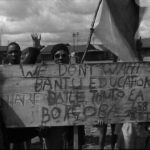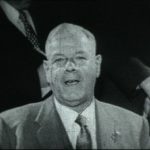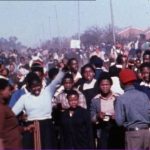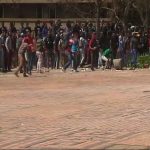This year marks fifty years since the assassination of South African Prime Minister, Hendrik Verwoerd, who is regarded as the architect of Apartheid. Last week’s part one of this series on the legacy of Verwoerd we highlighted issues around race identity and racial tensions in South Africa half a century after Verwoerd’s death. In this week’s episode we shift the focus to the education system.
When Hendrik Verwoerd was appointed Minister of Native Affairs in 1950, he personally started designing grand apartheid policies. One of the laws he drafted, enacted by the late 1950’s, was the so-called Bantu Education Law. It would ensure the segregated schooling of children from different races. Black children would receive an inferior education with much less resources dedicated to their schooling. In this episode we highlight the legacy of this devastating law on the education system, twenty-two years into our democracy, which the post-apartheid state is yet to succeed in correcting.
We also track the resistance against Bantu Education through archive material including the 16 June 1976 Soweto student uprising. We link this to the current Fees Must Fall Movement that has been dominating the public discourse since last year. “We live in a post-apartheid apartheid state”, says Wits student activist leader, Busisiwe Seabe. “Because of the stark inequalities still persisting, it is our generational responsibility to fight for free, decolonized education.”
But will this new social movement led once again by the youth, ensure greater equality between South Africans who are still very much divided along racial fault lines?
In his biography on Verwoerd, author Henry Kenny quotes Verwoerd as having said “I want to implant the concept of Apartheid so deeply into society that no future government would be able to undo what had been done.”
Did Verwoerd succeed in this goal?
Watch “Dismantling Verwoerd’s South Africa – Part Two” produced by Adel van Niekerk on Special Assignment, Wednesdays at 21h30 on SABC 3.














